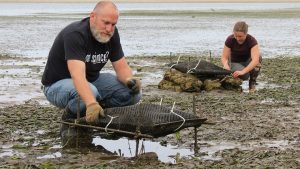
Researchers Explore Using Empty Oyster Shells to Decrease Acidic Seawater
Oregon Sea Grant supported researchers place bags of oysters on different amounts of empty shells to see if the shells help the oysters grow better in acidified waters.
Scroll down to view posts

Oregon Sea Grant supported researchers place bags of oysters on different amounts of empty shells to see if the shells help the oysters grow better in acidified waters.
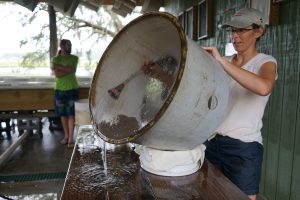
Sea Grant supports the advancement of sustainable aquaculture development through research, extension and education.
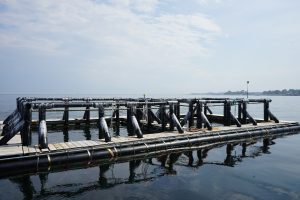
Sea Grant support enhances extension and technology transfer to advance aquaculture production in New Hampshire and Maine.
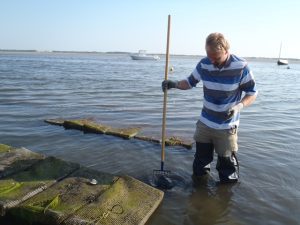
“We did this project specifically as a service to local municipalities to get them accurate data to utilize, if they’re going to go with the approach of seeding and growing shellfish as part of their water quality management plans.”
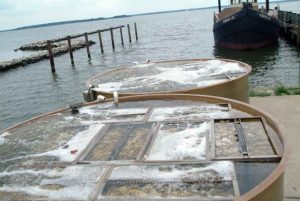
Many leaders in Maryland have highlighted the importance of developing oyster aquaculture in the state: this industry supports local working waterfronts and also helps the state’s struggling seafood industry. Maryland Sea Grant Extension helped to bring about changes in state policy to make it easier for residents to obtain leases for aquaculture operations in Chesapeake Bay, creating new opportunities for entrepreneurs. To help them pursue those opportunities, Maryland Sea Grant Extension and its partners have developed a number of programs that help shellfish growers to obtain start-up funding for these ventures and to build and operate them successfully.
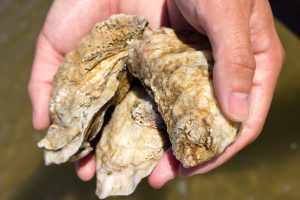
Sea Grant funded-researchers from the Virginia Institute of Marine Science may have found a positive side to an oyster parasite and its impact on vibrios bacteria.
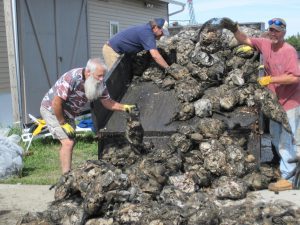
Promoting Oyster Restoration Through Schools or Project: PORTS has seeded more than 20 million oysters in conservation sites like Gandy’s Beach throughout the Delaware Bay since it began in 2007. It is led by New Jersey Sea Grant Consortium and partner Lisa Calvo at the Shellfish Aquaculture Coordinator for Rutgers University.
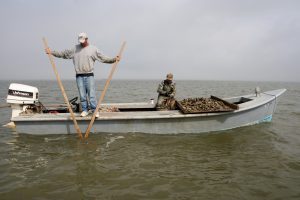
Florida Sea Grant brought together a team of researchers, agency scientists and industry leaders to understand the decline of the Apalachicola oyster fishery and to identify a strategy for efficient recovery.
Maine Sea Grant is helping to train lobstermen and other commercial fishermen on aquaculture techniques and business.
Part 3 of the 3 part series 'Selecting a Better Oyster'. Scientists at the Virginia Institute of Marine Science's Aquaculture Genetics and Breeding Technology Center look into how traits from parent oysters are passed to their offspring in hopes of improving Virgina's oyster aquaculture industry.
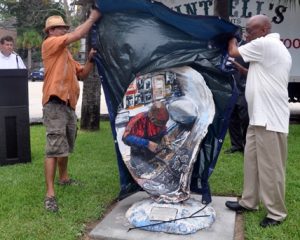
A colorful new art display opened up in downtown Mobile, AL to increase public awareness of the role oysters play in Mobile Bay.